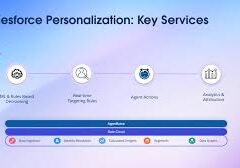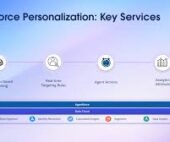What distinguishes a public group from a queue in Salesforce?
In Salesforce, public groups and queues serve different purposes. Public Group vs Queue in Salesforce:
- Public Groups: These are collections of users, defined to facilitate data sharing and collaboration. They are ideal for scenarios where a team needs shared visibility and access to records but do not involve assigning ownership of those records. Public groups are manually defined by administrators and can include users, roles, and other groups.
- Queues: These are collections of records that are not assigned to any specific owner. Queues are used to manage and distribute workloads among team members. Any member of a queue can claim ownership of a record from the queue. Queues are especially useful for managing cases, leads, service contracts, and custom objects.
What is a queue in Salesforce?
A queue in Salesforce is a collection point for records awaiting assignment. Queues allow users with access to review and claim ownership of records. They help prioritize, distribute, and assign records to team members, facilitating effective workload management.
Constraints of Queues in Salesforce
Salesforce does not limit the number of queues you can create. Queues can support various objects, including cases, leads, service contracts, and custom objects. There is no maximum limit on the number of queues, and you can set email notifications for queue members.
Can a queue own a task in Salesforce?
Yes, a queue can own a task in Salesforce. Tasks assigned to a queue appear in a list where any member can take ownership. This setup helps teams share and manage their workload effectively.
Can a queue own a record in Salesforce?
Yes, a queue can own a record in Salesforce. However, when creating new lead records, you cannot initially assign them to a lead queue. You can change the record’s owner to a queue after it has been created.
How do Salesforce Queues streamline workloads?
Salesforce Queues streamline workloads by:
- Prioritizing Records: Queues help prioritize records that require attention, ensuring they are addressed in a timely manner.
- Distributing Workloads: Queues distribute records among team members, preventing workload imbalances.
- Assigning Records: Queues allow any member to claim and take ownership of records, facilitating collaborative work on cases, leads, tasks, and more.
Groups vs. Public Groups in Salesforce
- Personal Groups: Created and used by individual users for sharing specific records they own.
- Public Groups: Created by administrators and can be included in sharing rules across the organization.
Roles vs. Public Groups in Salesforce
- Public Groups: Manually defined groups of users. These can be less flexible as they require maintenance if users change roles or leave the organization.
- Roles: Allow sharing with users in a specific role and those above it in the hierarchy, making them more dynamic and easier to manage.
Joining a Public Group in Salesforce
Anyone can join a public group in Salesforce. However, private groups restrict visibility and membership to group members only. Unlisted groups provide complete privacy, where only invited members can join and interact.
Limits on Public Groups in Salesforce
- Membership Limits: A user can join up to 300 public groups.
- Organizational Limits: An org can have up to 30,000 groups, including archived groups.
Creation of Public Groups
Salesforce does not impose a limit on the number of public groups you can create within an organization.
Public Group vs Queue in Salesforce













